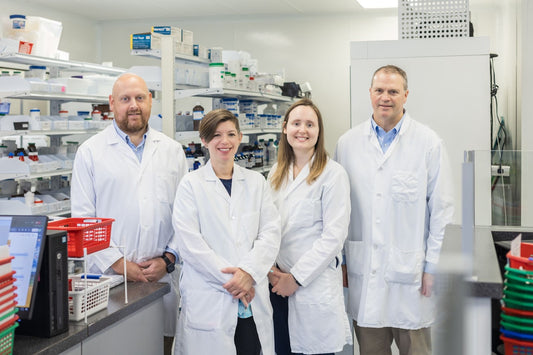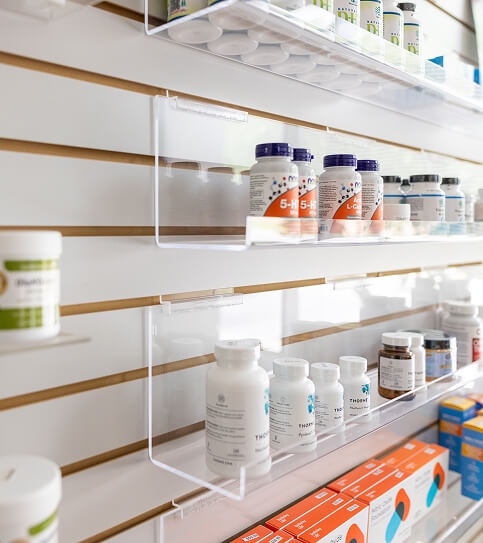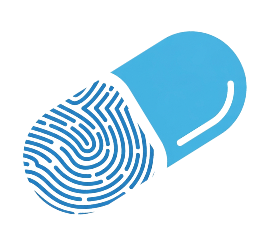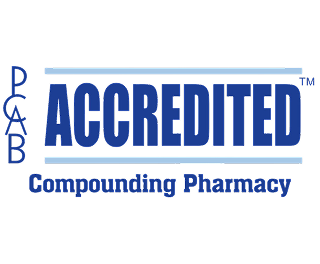Treatment areas & compounding specialties
Hormonal & Sexual Health
- Hormone Imbalance
- Weight Loss
- Erectile Dysfunction (ED)
- Sexual Health
- Adrenal/Thyroid
General & Specialized Medicine
- Pediatrics
- Mental Health
- Anxiety
- Sleep
- Pain Management
Skin, Hair, & Oral Care
- Dermatology
- Hair Regrowth
- Dental
- Allergies
- Wound Care
Specialty & Surgical Support
- Veterinary
- Urology
- OB-GYN
- Podiatry

What health care providers are saying
Disclaimer: Individual outcomes may differ. Compounded medications have not been reviewed or approved by the FDA for safety, effectiveness, or quality. Outcomes have not been independently validated.
We’ve got your back
Carefully prepared
Made in ISO-certified clean rooms for your peace of mind.
Top standards
PCAB-accredited, so you know it’s legit.
Real experts
60+ years of know-how behind every dose.
Your trust matters
Physicians-reviewed, personalized care.



Frequently Asked Questions
Are compounding pharmacies regulated like other pharmacies?
Yes. Compounding pharmacies are licensed and regulated by the state board of pharmacy, just like retail pharmacies. Our pharmacy is inspected annually by the North Carolina Board of Pharmacy (NC BOP) to ensure we follow all applicable laws and standards. This includes everything from prescription records and lab validation to how we manage inventory and medication disposal.
What prescriptions can a compounding pharmacy legally fill?
By law, compounding pharmacies (known as 503A pharmacies under the FDA) can only make medications based on a prescription written by a licensed healthcare provider for an individual patient. We cannot legally compound large batches for a doctor's office to use in-office or to resell to patients.
Are there rules about what ingredients can be used in compounded medications?
Absolutely. Compounding pharmacies must follow strict guidelines about what substances can and cannot be used. We only use high-quality ingredients from approved lists, like the USP/NF monograph and the FDA’s 503A Bulk Drugs List. These rules ensure safety, quality, and compliance with federal standards.
How do I write a compounded RX?
Include all standard prescription info:
- Drug name, strength, and form (list each drug and strength clearly, e.g., Baclofen 2%/Gabapentin 6%/Ketoprofen 10% Gel)
- Directions for use (e.g., Apply 1ml to affected area 2-3 times daily)
- Quantity or days’ supply (e.g., 90ml for 30 days)
- Refills (C3-5: up to 5 refills in 6 months; C2: no refills; ensure control signature for e-scripts)
- Write Compounded on Prescription
Note: We can’t compound solely for cost reasons—there must be a clinical need (e.g., intolerance to an ingredient). For questions, call us and press 602 to speak with a pharmacist.
Is the Pharmacy PCAB Accredited?
Yes, Triangle Compounding is PCAB Accredited. It was the first pharmacy in North Carolina to receive accreditation from the Pharmacy Compounding Accreditation Board (PCAB), a distinction held by less than 1% of compounding pharmacies in the U.S. PCAB accreditation means the pharmacy meets rigorous standards for quality assurance, compounding accuracy, personnel training, environmental control, and product testing
Is the pharmacy USP compliant?
Yes, Triangle Compounding is compliant with applicable United States Pharmacopeia (USP) standards. The pharmacy meets key requirements of USP 797, including:
- Quality assurance and improvement practices for each risk level of medications
- Verification of compounding accuracy and sterilization
- Personnel training and evaluation in aseptic techniques
- Environmental quality control
- Finished product release tests and checks
Does the facility have state-of-the-art equipment?
Yes, Triangle Compounding uses state-of-the-art equipment. All sterile products are prepared in an ISO Class 5 cleanroom, with separate areas for weighing and ingredient manipulation. The facility features advanced tools such as a computerized autoclave, microprocessor-controlled convection oven, USP-quality water system, laboratory-grade dishwasher, electronic pH meters, and more.
What technology is currently being used?
Triangle Compounding uses advanced technology to ensure safety and accuracy:
- Barcode readers, computers, and scales work together to prevent errors.
- All formulas are computer-based.
- Barcode scanning verifies chemicals, records lot numbers, and expiration dates.
- Scales interface with computers to ensure precise weighing (within 5% of required amount).
- Electronic records provide instant access to compounding, dispensing, and shipping information.
Does the pharmacy test their preparations?
Yes, Triangle Compounding tests its preparations. They perform internal sterility testing following USP guidelines and send samples to an outside lab for potency analysis.
Does the pharmacy have standard operating procedures?
Yes, Triangle Compounding has standard operating procedures (SOPs). Their policies and procedures have been reviewed by the Pharmacy Compounding Accreditation Board (PCAB) and meet its extensive requirements
Any unresolved complaints with the Board of Pharmacy?
Triangle Compounding and its licensed staff are all in good standing with the NC Board of Pharmacy
Can we see your facility?
We welcome you to schedule an on-site tour of Triangle Compounding. Visiting in person is the best way to see our facility, observe our compounding staff at work, and assess our cleanliness, organization, and personnel competence.
What goes into a compounded preparation?
A compounded preparation at Triangle Compounding involves:
- Highly trained pharmacists and staff, with ongoing internal and external training.
- A dedicated quality team ensuring all employees are certified and preparations meet the highest standards.
- Advanced technology, including analytical balances accurate to 2mg and barcode-linked computer software for precise ingredient tracking.
- Multiple double checks to ensure accuracy and safety—nothing leaves our pharmacy unless it meets our strict quality standards.
What is a day in the life of a RX at TCP?
- An input technician enters your prescription, then a pharmacist verifies it.
- Our staff contacts you to discuss your prescription and answer any questions.
- Once approved, a compounding technician prepares your medication.
- A pharmacist reviews and inspects the final product for accuracy and quality.
- Your prescription is sent to shipping or placed at the front desk for pickup. We’ll notify you when it’s ready.
What’s Special About Compounded Medications?
- Personalized: Prescribed to fit each patient’s unique needs for optimal care.
- Fewer Additives: Typically contain minimal fillers, dyes, and allergens compared to mass-produced medications.
- Cleaner Ingredients: No need for long shelf-life stabilizers or preservatives, so compounded meds are often “cleaner.”
- Custom Flavors: Choose from a variety of flavors—much more than the standard options in commercial products.
- Shorter Shelf Life: Compounded meds have a shorter beyond-use date (24 hours to 6 months), but this means fewer unnecessary additives.
In short, compounded medications are tailored to your patient’s needs and preferences, unlike standard manufactured drugs.
Disclaimer
Triangle Compounding Pharmacy prepares customized medications following a valid prescription for an individual patient. Compounded medications are not evaluated or approved by the FDA for safety or efficacy. This information is intended for licensed healthcare professionals.

What is Hormone Replacement Therapy?
Hormones are mighty messengers in the body. They control everything from mood to metabolism, sleep to sexual wellness, and energy levels to emotional well-being.
What is Hormone Replacement Therapy?
Hormones are mighty messengers in the body. They control everything from mood to metabolism, sleep to sexual wellness, and energy levels to emotional well-being.

What is a Compounding Pharmacy?
In today's world, health care is becoming increasingly personalized. Individual patients need customized medicinal solutions. Compound pharmacies play a significant role in meeting these crucial requirements.
What is a Compounding Pharmacy?
In today's world, health care is becoming increasingly personalized. Individual patients need customized medicinal solutions. Compound pharmacies play a significant role in meeting these crucial requirements.





